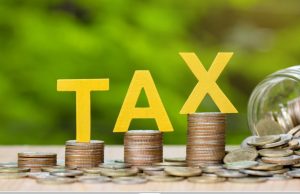Table of Contents
The world is entering a new era, and people are progressing likewise. The livelihood and how to afford that livelihood are changing as well. The old payment methods are now distinguishing slowly. Cryptocurrency is gaining momentum as a new form of medium of exchange.
With the gigantic acceptance of cryptocurrency worldwide, many investors and traders are attracted. Many investors have made a huge amount of profit through crypto-assets and kept on developing. This popularity stemmed from the assessment of tax treatment by the HRMC (Her Majesty’s Revenue and Customs).
Cryptoassets

Cryptoassets are digital possessions that have value created by the software. These can be used to transfer, store and trade digitally. The main type of token or cryptoassets acknowledged by the HRMC are:
Exchange token
These are the tokens designed to be used as a medium of exchange. Exchange tokens are traded in cryptos like Bitcoin, Ethereum, etc. they have gained popularity as these investments increase the value.
Security tokens
These tokens are specified to have certain rights in the business. They have interests like possession, payments of a particular amount, future profit shares. These can be called the specified investments and are stated under Financial Services and Markets Act (2000).
Utility tokens
These tokens are exchanged for some particular goods and services. They grant access to a specific good or service to the trader. These goods or services are supplied via distributed ledger boards or platforms. Using the DLT technology, i.e., Distributed ledger tech, the trader or user is given the bearer access to the goods or services.
Stablecoins
These are the tokens whose tax liability will depend on how you use them. The value of these coins is linked to fiat money or assets. They tend to minimize the instability as they are exchanged with something that has a stable value.
How is Cryptocurrency Taxed in the UK?

There is no specific cryptocurrency tax in the United Kingdom. The cryptos are taxed under Capital Gains Tax or Income Tax. The amount of tax paid on cryptocurrencies will depend on your trading style with them. If the cryptos are making you earn income, then income tax will be charged; if the cryptos are making you earn any capital gain then, the capital gain tax will be charged.
Crypto Capital Gain Tax in the UK
As crypto is seen as an asset, and Capital Gain Tax is charged when a Capital Gain is earned through it.
Tax will be paid when the crypto is disposed of as:
- Selling the cryptocurrency for fiat currency.
- Swapping or exchanging crypto for another crypto.
- Spending crypto to buy goods and services.
- Giving crypto as a gift except when provided to wife or any partner.
An important thing to note is that this Capital Gain tax will be paid only when profit is earned and not on all disposals.
- Rates of tax in Capital Gains
All the capital gains are charged under the same rates depending on how much you earn.
- 10% – basic income up to £50,270.
- 20% – higher income up to £150,000.
- 20% – additional income more than £150,000.
Crypto Income tax in the UK
When income is earned via crypto, then Income Tax is charged. The transactions specified for income tax come under the regular income tax band.
Crypto is taxed under income in the following cases:
- When the earning is recognized as money worth and comes under National Insurance.
- Staking Rewards – depending upon the factors such as: Nature of organization, degree of the activity, the risk involved, and commerciality.
- Mining tokens
- Airdrops
- Rates of tax in Income
These are the income tax bands in the UK charged on the income earned:
- 0% – Personal Allowance up to £12,570.
- 20% – Basic Rate up to £12,571 – £50,270.
- 40% – Higher Rate up to £50,271 – £150,000.
- 45% – Additional Rate for more than £150,000 income.
Crypto transactions that are exempted from tax
Are there any transactions or dealings in cryptocurrency which are exempted from tax? Well, the answer is YES.
These are exempted items are:
- Transfer of cryptocurrencies between your own digital wallets.
- Buying or cryptocurrencies with any fiat currency. E.g. GBP.
- Gifting or presenting crypto to your spouse.
- HODLing cryptocurrency.
Assessment year of Crypto Tax
Now, when to submit a tax return in the UK, the question arises. The answer is if you’ve done any transaction in cryptocurrency, i.e., buying or selling between 6th April 2020 and 5th April 2021. Then, you need to register for the Self-assessment by the 5th October 2021, and the assessment year will be January 2022.

Missing the deadline can cause a penalty of £100 and more in case of more delay.
The trader needs to keep all the records of the transactions and dealing in the year and specify all the capital gains or losses and crypto earnings as income to the HM Revenue and Customs(HRMC).
Information HRMC might ask for crypto charge tax
It has been clear in the above state information that the trader or investor has to record all the details regarding the transactions of the cryptos. The details need to include:
- The type of crypto asset which is being dealt with.
- Dates of all the transactions or dealings.
- Details; bought or sold the cryptoasset.
- The amount or number of coins dealt with.
- The value or price of the trade-in pound sterling (£).
- Bank statements and wallet statements, in case of enquiry.
- The number of investment units.
How to calculate crypto taxes?

Calculating the amount of tax when the trading is voluminous is time-consuming. You can either use any crypto tax calculator or do it yourself manually. Following are the steps to be followed:
- Identifying the type of transaction for the whole year.
- Identify if the tax will be charged under Capital Gain Tax or Income Tax.
- Determining the cost base of each transaction.
- Calculating all the profits and losses or income and expenses.
- Subtraction of net capital losses from the gains.
If the capital gain is less than £12,300, then only in the following conditions, you need to report the crypto taxes to the HRMC:
- The total amount for which the asset was sold; was more than 4 times the allowance.
- You’ve registered for self-assessment.
If the net capital gains are more than £12,300, then the crypto tax will be charged, and you have to report it to the HRMC.
Conclusion
HRMC has published a manual for the UK traders who hold cryptocurrencies. The manual describes how cryptos are to be charged and what records are to be maintained, it is clearly explained with the expert’s knowledge in Bitcoin Code. The tax on cryptos is considered as either how much money you are making or as an investment base. Crypto taxes should be filed daily, and it is likely to be challenged in case of deviation. The tax sector in this field will develop with the enhancement of Cryptocurrency areas.


